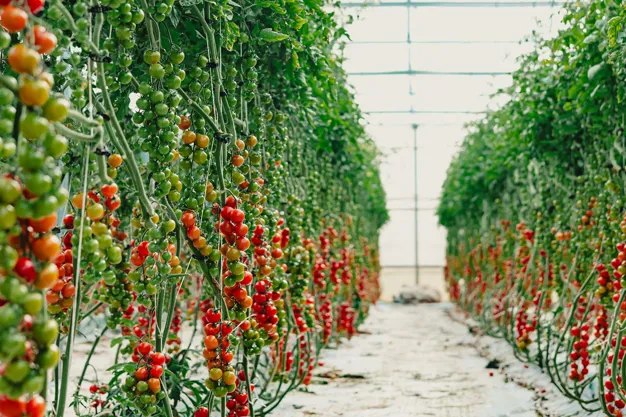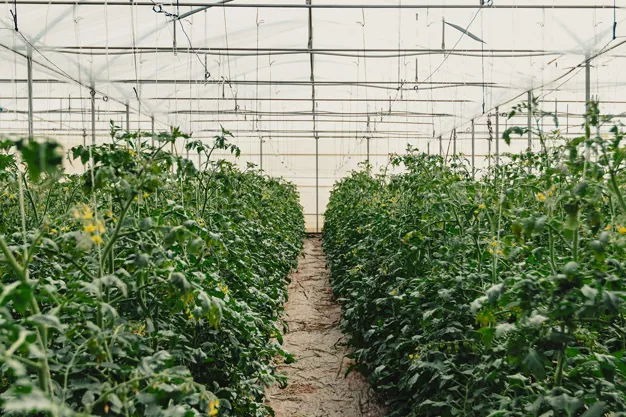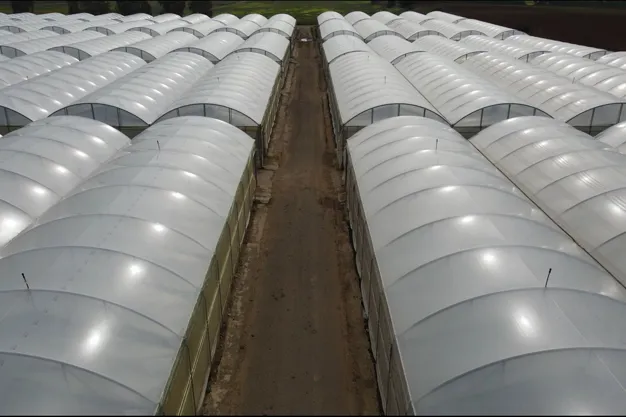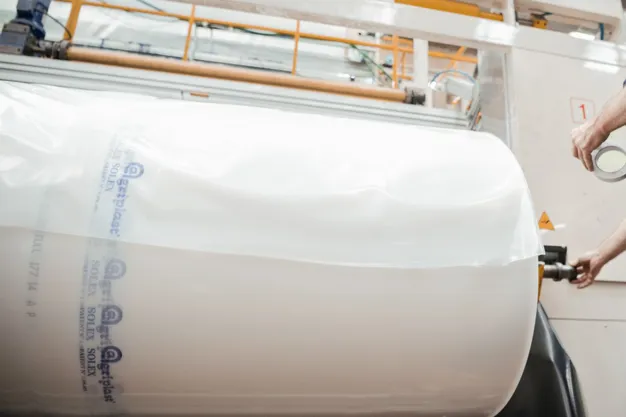The three key elements that need to be managed to achieve an ideal microclimate in greenhouses are light, temperature, and humidity. Finding the ideal balance between them can considerably improve agronomic results. Of course, there are multiple aspects in which one can intervene, but the physical barrier, i.e., the plastic film, definitely plays a leading role.
 Light conditions in a greenhouse
Light conditions in a greenhouse
Agriplast Spa is a producer of plastic films for greenhouses, always looking for new solutions, i.e., plastic films capable of keeping an optimal temperature in greenhouses without compromising solar radiation, which is essential for the quantitative and qualitative performance of the crops.
 Light conditions in a greenhouse
Light conditions in a greenhouse
One of the best solutions offered by Agriplast is Solex, a patented plastic film that takes advantage of the glass microbead technology as a filter for solar radiation. The film is produced using the 7-layer extrusion technology and boasts exceptional mechanical characteristics and high resistance to aging. Solex can reach guaranteed durations that, in the highest stabilization version, reach up to 42 months.
 Greenhouse is entirely covered using Solex films by Agriplast
Greenhouse is entirely covered using Solex films by Agriplast
"The micro-beads used for the production of Solex mainly act on two factors: solar radiation and thermal energy. From the point of view of solar radiation, the micro-beads take advantage of the refraction phenomenon - unlike traditional diffused light films - which lets through a high number of solar rays though changing their incidence, and thus avoiding the effect of direct light on the plants", the team says. "From a thermal point of view, glass micro-beads boast an excellent insulating capacity! This means Solex can be a thermal barrier between the inside and the outside of the greenhouse, thus allowing more gradual temperature changes and reducing thermal stress."
 Reel of Solex material
Reel of Solex material
The studies carried out on the crops grown under Solex plastic films show improvements in the general health of plants, which become more resistant to adverse events such as particular climate conditions and viruses. What is more, increases in production and a considerable improvement in the organoleptic properties of fruit shave have also been observed.
For more information:
Agriplast S.p.A.
Via Filippo Bonetta 35
97109 Vittoria (RG) - Italy
Tel.: +39 0932 997211
[email protected]
www.agriplast.com
